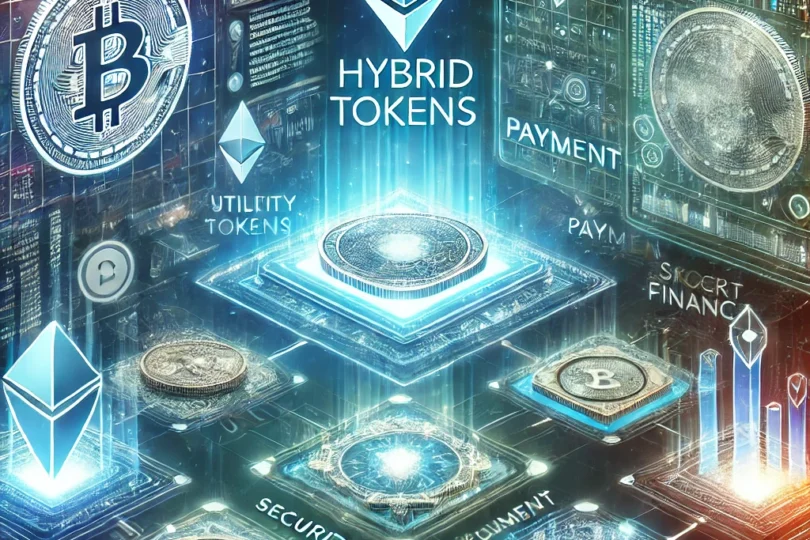Summary and Opinion
The landscape of cryptocurrency in 2024 is witnessing the rise of hybrid tokens, a new class of digital assets that combine the features of utility, security, and payment tokens. These hybrid tokens are designed to leverage the best aspects of each type, offering a multifaceted approach to digital asset creation and utilization.
Key Characteristics and Examples
Hybrid tokens integrate functionalities from different token categories, providing diverse benefits and use cases. For example, a hybrid token might grant access to specific services (utility), represent ownership stakes (security), and facilitate transactions (payment). This combination can enhance liquidity, usability, and value proposition, making hybrid tokens a compelling choice for both developers and investors.
Popular examples of hybrid tokens include:
- Compound (COMP): This governance token for the Compound protocol allows holders to propose and vote on changes while offering yield farming rewards.
- Uniswap (UNI): As a governance token for the Uniswap DEX, UNI provides governance rights and a share of trading fees.
- Aave (AAVE): Native to the Aave lending protocol, AAVE offers staking rewards and governance rights (Gate.io) (TokenMinds).
Use Cases and Benefits
Hybrid tokens are versatile, finding applications across various sectors:
- DeFi Platforms: They can provide utility in decentralized finance by offering staking rewards, lending, and borrowing functions.
- Gaming and NFTs: In gaming, hybrid tokens can represent in-game assets with utility and investment potential, while in NFT platforms, they enable fractional ownership and governance rights.
- Real Estate: By tokenizing real estate, hybrid tokens offer investment returns and access to property-related services.
- Supply Chain Management: They can enhance transparency and efficiency by tracking goods and providing incentives in the supply chain (TokenMinds) (Law & Blockchain).
Challenges and Considerations
While hybrid tokens offer significant advantages, they also present challenges. Regulatory compliance is a major concern, as these tokens often fall into a gray area between securities and utilities. This necessitates careful navigation of legal frameworks to avoid penalties and ensure transparency. Additionally, the technical complexity of integrating multiple functionalities into a single token can be daunting, requiring robust smart contract development and thorough testing (Gate.io) (HybridX).
Despite these challenges, the potential of hybrid tokens to transform the blockchain economy is immense. By combining utility, security, and payment features, they offer a comprehensive solution that could drive broader adoption and innovation in the cryptocurrency space.
Hashtags
#Cryptocurrency #HybridTokens #Blockchain #DeFi #NFTs





The concept of hybrid tokens is revolutionizing the cryptocurrency landscape by merging the best features of utility, security, and payment tokens. This multifaceted approach allows hybrid tokens to provide diverse benefits, enhancing their appeal and functionality. For instance, a hybrid token can grant access to specific services within a blockchain ecosystem (utility), represent ownership stakes or profit-sharing rights (security), and facilitate transactions as a medium of exchange (payment). This integration not only broadens the scope of use cases but also increases the token’s overall value proposition (Gate.io) (TokenMinds).
One of the most exciting aspects of hybrid tokens is their versatility across various industries. In decentralized finance (DeFi), hybrid tokens can offer staking rewards, lending and borrowing functionalities, and governance rights. In the gaming industry, these tokens can represent in-game assets with both utility and investment potential, enhancing player engagement and monetization opportunities. Real estate tokenization also benefits from hybrid tokens, as they can provide fractional ownership, rental income, and access to related services. These diverse applications highlight the transformative potential of hybrid tokens in creating more dynamic and integrated digital economies (TokenMinds) (Law & Blockchain).
Despite their numerous advantages, hybrid tokens come with challenges that need careful navigation. Regulatory compliance is a significant concern, as these tokens often exist in a gray area between securities and utilities. This ambiguity can lead to legal risks and necessitates meticulous adherence to relevant laws to avoid penalties. Additionally, the technical complexity involved in developing hybrid tokens requires robust smart contract architecture and thorough testing to ensure seamless functionality and security. Overcoming these challenges is crucial for the successful adoption and integration of hybrid tokens in the broader cryptocurrency market (Gate.io) (HybridX).
Overall, the future of hybrid tokens looks promising as they continue to evolve and find new applications. By combining utility, security, and payment features, hybrid tokens offer a comprehensive solution that can drive broader adoption and innovation in the cryptocurrency space. As the blockchain ecosystem matures, these tokens are likely to play a pivotal role in shaping the next generation of digital assets, providing enhanced liquidity, usability, and value for both developers and investors alike. Embracing the potential of hybrid tokens could pave the way for more resilient and adaptable financial systems in the digital age (TokenMinds) (HybridX).